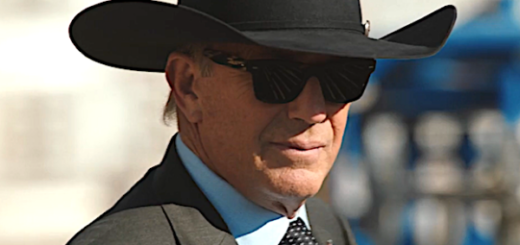Why Dexter Fans Will Love Mr. Brooks Starring Kevin Costner
Kevin Costner’s Mr. Brooks Offers a Chilling Mirror for Dexter Fans — Here’s Why You Should Watch It
Nearly two decades after its debut in 2006, Dexter: Resurrection has rekindled fans’ fascination with TV’s most charming serial killer. The ongoing saga of Miami’s blood-spatter analyst–turned–vigilante murderer continues to captivate audiences, many of whom are hungry for stories that echo Dexter Morgan’s signature blend of darkness, duality, and inner torment.
One overlooked film released during Dexter’s early cultural rise deserves a fresh look: 2007’s Mr. Brooks. Starring Kevin Costner and Demi Moore, this psychological thriller offers a parallel exploration of hidden violence cloaked in respectability. Here are three compelling reasons Dexter fans should add Mr. Brooks to their watchlist.
1. Kevin Costner Wears a Dark Passenger on the Outside
Much like Dexter, Earl Brooks (Costner) leads a meticulously controlled double life: a respected businessman and loving father by day, and a calculating killer by night. But unlike Dexter’s inner monologue with his “Dark Passenger,” Brooks’ internal conflict takes physical form in the eerie presence of William Hurt’s character, Marshall — a manifestation of his homicidal urges.
This dynamic externalizes the inner struggle that Dexter fans know so well, transforming Brooks’ psychological burden into a chilling, almost theatrical dialogue. The interplay between Costner and Hurt is both unsettling and hypnotic, creating a fresh spin on the familiar concept of a killer wrestling with his conscience — or lack thereof.
2. A Cast That Elevates the Darkness
Costner plays Brooks with icy precision, exuding a composed charm that conceals deep moral rot. Hurt, as the ever-present Marshall, is delightfully sinister — equal parts tempter and accomplice. Together, they embody a twisted duality that makes Brooks as fascinating as he is terrifying.
Demi Moore brings gravity to the role of a determined detective whose personal and professional lives are tightly wound around the case. Dane Cook surprises in a dramatic turn as a sleazy amateur blackmailer who gets in over his head. Under Bruce A. Evans’ direction, the ensemble strikes a balance between menace and restraint, creating a noir-tinged atmosphere that simmers with unease.
3. A Darker, Colder World Than Dexter’s
While Dexter often walked a tightrope between gruesome violence and ironic self-awareness, Mr. Brooks leans harder into darkness. There’s little room for levity here — just a stark, clinical look at how privilege, wealth, and self-control can be used to mask monstrous behavior.
Brooks doesn’t kill for justice or moral satisfaction; he kills because he enjoys it, and because he can. The film doesn’t try to redeem him — it dares you to keep watching as he spirals deeper into depravity. The result is a thriller that doesn’t offer comfort or resolution, just a cold gaze into the abyss of human duality.
Final Thoughts
If Dexter showed us a killer we could root for, Mr. Brooks shows us one we fear — and maybe, disturbingly, understand. For fans who enjoy layered antiheroes, high-stakes mind games, and psychological tension wrapped in elegant horror, Mr. Brooks is a gripping, underrated gem worth rediscovering.


